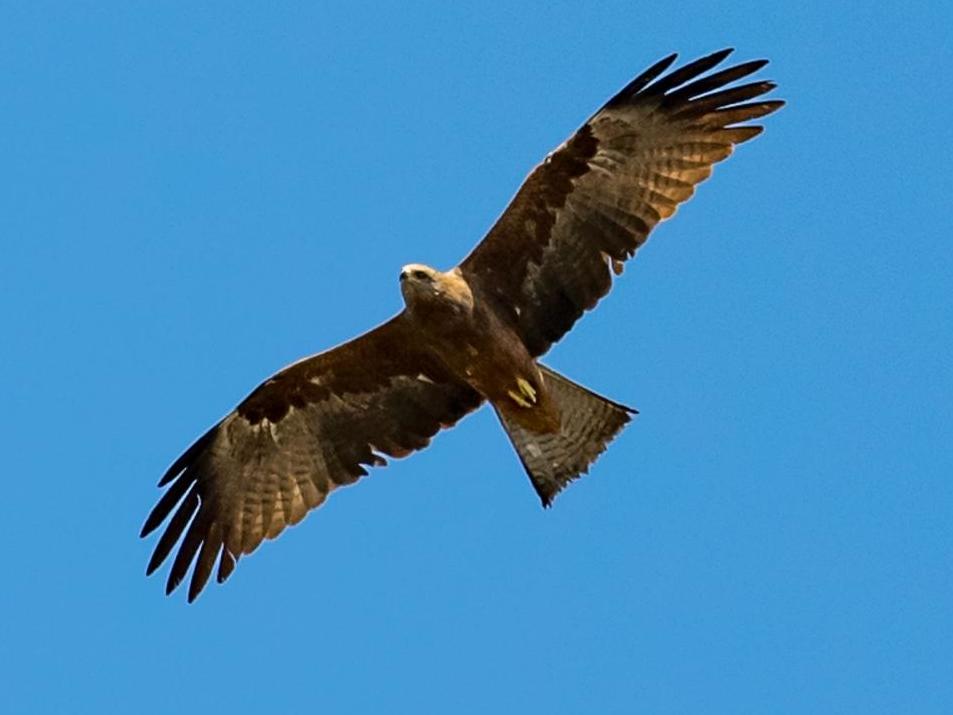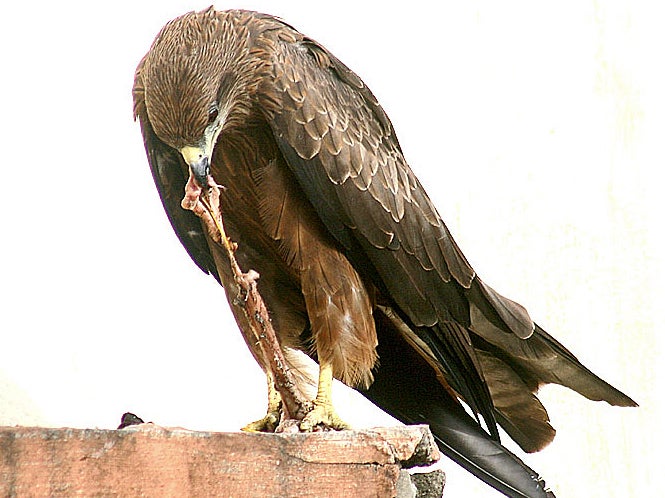Black kites set to breed in the UK for first time as climate warms
With 5ft wingspans and sharp talons, the black kite is an acrobatic flyer and one of the world’s most successful scavengers

Your support helps us to tell the story
From reproductive rights to climate change to Big Tech, The Independent is on the ground when the story is developing. Whether it's investigating the financials of Elon Musk's pro-Trump PAC or producing our latest documentary, 'The A Word', which shines a light on the American women fighting for reproductive rights, we know how important it is to parse out the facts from the messaging.
At such a critical moment in US history, we need reporters on the ground. Your donation allows us to keep sending journalists to speak to both sides of the story.
The Independent is trusted by Americans across the entire political spectrum. And unlike many other quality news outlets, we choose not to lock Americans out of our reporting and analysis with paywalls. We believe quality journalism should be available to everyone, paid for by those who can afford it.
Your support makes all the difference.Red kites are a common sight in UK skies thanks to a reintroduction programme that means the raptor has gone from virtually extinct to more than 1,800 breeding pairs. It now appears a changing climate will mean its close cousin the black kite will be the latest species to populate our skies.
With five-foot wingspans and sharp talons, the black kite is an acrobatic flyer and one of the world’s most successful scavengers. They are widespread in Europe but have never lived in Britain. Similar in size to red kites, black kites are not black but a darker shade of brown than their northern cousins.
Each spring these sociable birds migrate up from sub-Saharan Africa via the Straits of Gibraltar or along the coast of the Black Sea to have their chicks in Europe, which supports a population of at least 65,000 breeding pairs. As the climate warms their territory has been expanding north and in recent years they’ve been spotted soaring over the UK’s southern shores, potentially scouting out new habitats.
A black kite was first spotted in the UK over the Shetland Islands in 1966. Since 2010, an average of 25 black kites are spotted every year, most commonly in Kent, according to the Bird Watching magazine. Bird expert David Tomlinson, who spotted a black kite gliding above his home in Suffolk in April last year, says there is a strong chance a pair will nest in the next decade.
“At the moment, the Loire Valley in France is about as far north as you expect them to be breeding. There’s a lot of overshoot in spring but they don’t seem to stay around for long. However, if two should arrive together there’s a good chance they could stop and nest in the UK,” he said.
Research from the British Trust of Ornithology (BTO) says black kites are one of 10 birds that are likely to colonise the UK in the coming years as average temperatures increase.
The birds normally hunt near lakes and rivers but increasingly live near landfill where there is plenty of prey. Similar to red kites, they are opportunistic feeders and often pick up dead or sick animals, or pinch them from buzzards and kestrels.
They are agile flyers and can catch food “on the wing”, bringing it directly into their mouth without slowing down. Unlike most raptors, they are social birds that often gather in large flocks to roost.
“There will be no problem with them surviving in the UK. If it wasn’t for the Channel, I’m sure that these birds would already be nesting here,” said Mr Tomlinson, who thinks UK bird watchers would be “thrilled” to see them starting families here.
“If we do get one or two birds they’re a very colonial species and successful at breeding so their offspring might well come back and found a small colony.”

Non-native species can have devastating effects on UK wildlife – the introduction of grey squirrels caused a catastrophic decline in native red squirrels and Asian hornets are believed to be having a devastating impact on British honeybees.
However, as scavengers, experts say black kites will have a negligible effect on existing ecosystems as they rely heavily on carrion. This means – like red kites – they are unlikely to have any conflict of interest with existing birds of prey.
Gareth Cunningham, the RSPB’s head of nature policy, says any black kites arriving in the UK must be a result of natural migrations and not by intentional or accidental introduction.
“It is clear that the man-made climate crisis is accelerating changes to our natural world, and this may well lead to us seeing black kites in the UK in the future … We would want to be sure that any black kites arriving in the UK was a result of their natural movements and migrations,” he said.
In the past decade more than 55 land-based and marine species have moved to parts of Britain outside their natural range. This includes purple herons – which bred successfully for the first time in Kent in 2010 – and European bee eaters – which first bred in the UK in 2014.
According to a study, published in the Journal of Applied Ecology last month, 29 per cent of these natural species movements have had negative impacts on nature or people. Twenty per cent were said to have positive impacts.
Dr Nathalie Pettorelli, a senior research fellow at ZSL’s Institute of Zoology who led the research, believes black kites are “very likely” to be added to list and does not believe they would cause any damage to UK ecosystems.
If people think they see a black kite – or any other sightings of wildlife in an unexpected part of the country – Dr Pettorelli asks them to post the sighting on Twitter and tag the @sotm_uk account.
This will help inform future research on the impact of climate change on UK wildlife.
Join our commenting forum
Join thought-provoking conversations, follow other Independent readers and see their replies
Comments